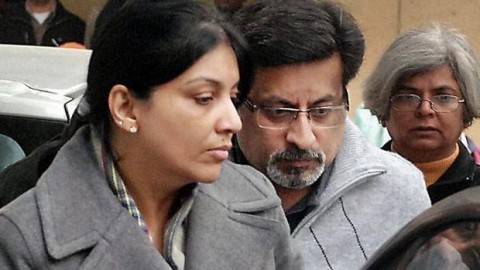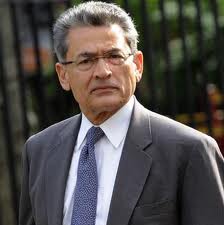The Washington Post and US unit of The Guardian have received this year’s Pulitzer Prize for covering the most intriguing story of Edward Snowden and National Security Agency surveillance.
The stories based on the leaked documents provided by the former National Security Agency contractor Edward Snowden have been chosen for the Pulitzer Prize for public service the highest honour in American journalism.
It was expected that the committee could not ignore the effect of Snowden leaks. It would have been controversial if indeed they overlook NSA coverage.
With Snowden’s leaked documents the brave reporters including Glenn Greenwald of Guardian; Barton Gellman of The Post and Laura Poitras who worked with both the organizations wrote extensive articles which astonished the world.
In a statement Janine Gibson, editor-in-chief of Guardian US, said, “We’re extremely proud and gratified to have been honoured by the Pulitzer board.”
“It’s been an intense, exhaustive, and sometimes chilling year working on this story,” she said.
“It’s been an intense, exhaustive and sometimes chilling year working on this story and we’re grateful for the acknowledgment by our peers that the revelations made by Edward Snowden and the work by the journalists involved represent a high achievement in public service,” Gibson added.
Reacting to the news, Snowden, who is currently in Russia thanked the Pulitzer board by saying the coverage was “vindication for everyone who believes that the public has a role in government.”
India-born poet Vijay Seshadri has also won the Pulitzer Prize for 2014 in the poetry category for his collection of poems “3 Sections.”
Here’s the list of 2014 Pulitzer winners:
| Journalism | |
| Public Service | The Guardian US, and The Washington Post, for their coverage of the NSA. |
| Breaking News Reporting | Staff of The Boston Globe for “its exhaustive and empathetic coverage of the Boston Marathon bombings and the ensuing manhunt that enveloped the city.” |
| Investigative Reporting | Chris Hamby of The Center for Public Integrity, Washington, DC for “his reports on how some lawyers and doctors rigged a system to deny benefits to coal miners stricken with black lung disease, resulting in remedial legislative efforts.” |
| Explanatory Reporting
|
Eli Saslow of The Washington Post for “his unsettling and nuanced reporting on the prevalence of food stamps in post-recession America, forcing readers to grapple with issues of poverty and dependency.” |
| Local Reporting
|
Will Hobson and Michael LaForgia of Tampa Bay Times for “their relentless investigation into the squalid conditions that marked housing for the city’s substantial homeless population, leading to swift reforms.” |
| National Reporting
|
David Philipps of The Gazette, Colorado Springs, CO for “expanding the examination of how wounded combat veterans are mistreated.” |
| International Reporting
|
Jason Szep and Andrew R.C. Marshall of Reuters for “their courageous reports on the violent persecution of the Rohingya, a Muslim minority in Myanmar that, in efforts to flee the country, often falls victim to predatory human-trafficking networks.” |
| Commentary
|
Stephen Henderson of the Detroit Free Press for “his columns on the financial crisis facing his hometown.” |
| Criticism
|
Inga Saffron of The Philadelphia Inquirer for “her criticism of architecture that blends expertise, civic passion and sheer readability into arguments that consistently stimulate and surprise.” |
| Editorial Writing
|
Editorial Staff of The Oregonian, Portland for “its lucid editorials that explain the urgent but complex issue of rising pension costs, notably engaging readers and driving home the link between necessary solutions and their impact on everyday lives |
| Editorial Cartooning
|
Kevin Siers of The Charlotte Observer “for his thought provoking cartoons drawn with a sharp wit and bold artistic style.” |
| Breaking News Photography
|
Tyler Hicks of The New York Times for “his compelling pictures that showed skill and bravery in documenting the unfolding terrorist attack at Westgate mall in Kenya.” |
| Feature Photography
|
Josh Haner of The New York Times for “his moving essay on a Boston Marathon bomb blast victim who lost most of both legs and now is painfully rebuilding his life.” |
| Letters, Drama, and Music |
| Fiction | The Goldfinch by Donna Tartt (Little, Brown) |
| Drama | The Flick by Annie Baker |
| History
|
The Internal Enemy: Slavery and War in Virginia, 1772-1832 by Alan Taylor (W.W. Norton) |
| Biography or Autobiography
|
Margaret Fuller: A New American Life by Megan Marshall (Houghton Mifflin Harcourt) |
| Poetry | 3 Sections by Vijay Seshadri (Graywolf Press) |
| General Nonfiction
|
Toms River: A Story of Science and Salvation by Dan Fagin (Bantam Books) |
| Music
|
Become Ocean by John Luther Adams (Taiga Press/Theodore Front Musical Literature) |
Tags: Edward Snowden Janine Gibson NSA NSA leaks Pulitzer Pulitzer 2014 Snowden leaks Vijay Seshadri










